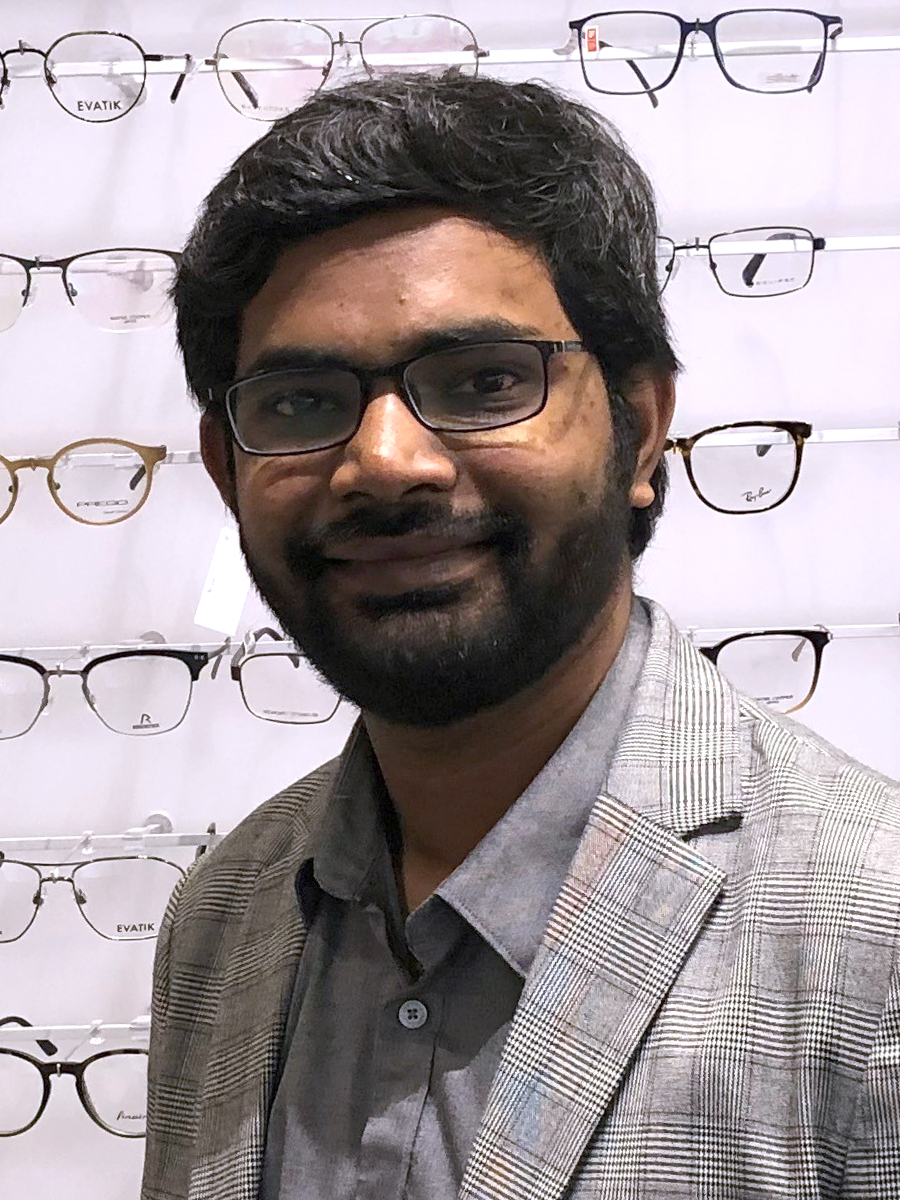
Hari Peguda
Scientia PhD Candidate
Research Title: Development of Rapid Identification System for Acanthamoeba
Supervisors: Professor Mark Willcox, Dr Nicole Carnt, Dr Sophia Gu
Research
Acanthamoeba is a free-living protozoan known to cause contact lens-related keratitis in humans. Early diagnosis of Acanthamoeba keratitis (AK) is challenging for the clinician but is needed to achieve better visual prognosis. In 50% of the cases, AK gets misdiagnosed due to its clinical presentation mimicking other forms of keratitis (e.g. Herpes simplex virus keratitis) and its ability to switch phenotype between an active trophozoite and dormant cyst stage. Various diagnostic tests are available to identify Acanthamoeba in the eye but all of them have their own limitations. All these tests require samples obtained by scraping or biopsy and usually staining of the tissue or growth of the Acanthamoeba. The small sample that can be obtained often results in no growth and no evidence of Acanthamoeba upon microscopy. The exception for testing is the use of confocal microscopy, but this also has its limitations. These limitations include the difficulty in distinguishing between Acanthamoeba and human white blood cells in the tissue, and the need for an experience observer to acquire images. This suggests that there is a need for a rapid identification system for Acanthamoeba. In vitro and in vivo studies have shown the use of nanoparticles as a potential tool for imaging cells. Layer double hydroxide nanoparticles have gained importance in biomedical applications due to their ease of surface modification, synthesis and low cytotoxicity. With this background, the aim of my research is to develop fluorescein labelled nanoparticles which can identify Acanthamoeba faster in vivo.
Biography
Hari completed his Bachelor of Science in Optometry from Bausch and Lomb School of Optometry, India in 2006- 2010. He worked as a consultant optometrist at L V Prasad Eye Institute (LVPEI), India (2010-2018) before starting his PhD at UNSW in 2018. He was the key member in leading the optometry team of Vitreo-Retinal services and in charge of diagnostics at LVPEI. He has successfully completed the ‘’Young Leaders Program 2016-17’’ conducted by the India Vision Institute (IVI), India and ‘Short term Fellowship for Optometrists in Diabetic Retinopathy’ between the August 2016 - February 2017 at LVPEI.
Education
2018 - Current PhD, School of Optometry and Vision Science, UNSW Sydney
2006 - 2010 Bachelor of Science in Optometry, BITS Pilani
Conference attendance
International conference on Nanotechnology and its application to ocular drug delivery systems, Maliba Pharmacy college, Gujarat, India - 2019.
BCLA clinical conference and exhibition, Manchester, UK – 2019.
10th International Nanomedicine conference, Sydney, Australia -2019.
2nd World Congress of Optometry, Hyderabad, India- 2017.
Affiliations and membership
Member of British Contact Lens Association.
Member of Cornea and Contact Lens Association of Australia.
- Publications
